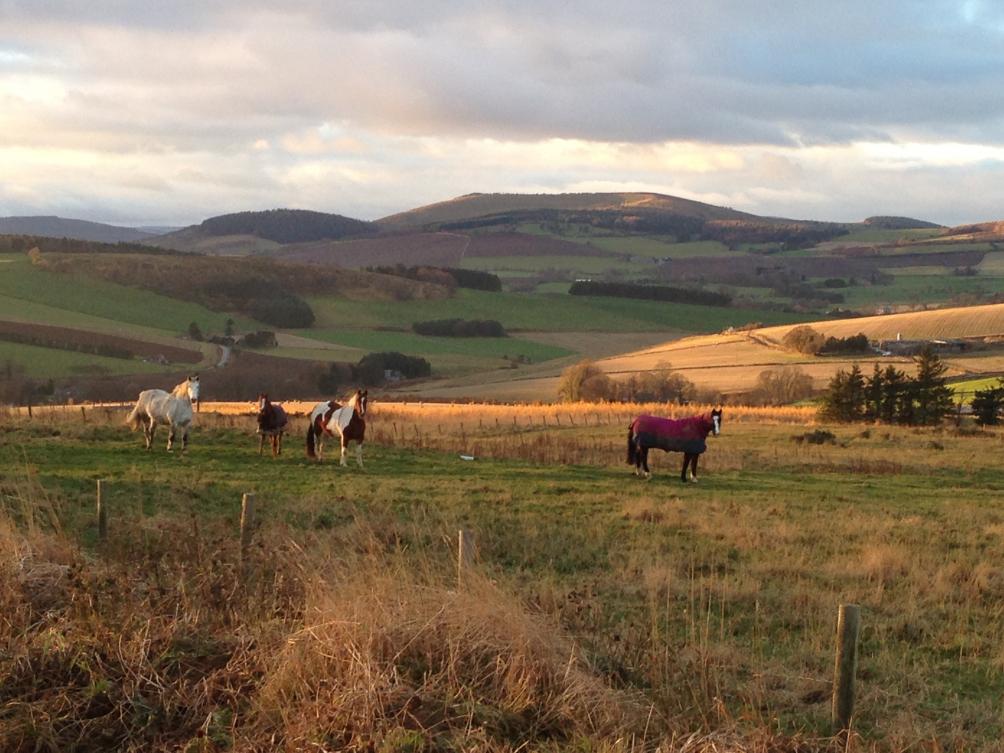The battle for our countryside post Brexit
21st October 2016 by Ewan Pate

The battle lines are drawn, in this second feature written for the OFC by Ewan Pate, a farmer and former Farming Editor of The Courier, he delves into the views of the CLA, Scottish Land and Estates, the RSPB, The National Trust.
CLA
The CLA (formerly the Country Land and Business Association) is looking for a balanced food, farming and environment policy to deliver a range of outcomes in a post-Brexit Britain. The organisation’s president has acknowledged that farming has work to do to prove that it deserves support. He was responding to George Freeman MP, an adviser to Mrs May, who told the Conservative Party Conference that British farming had so far failed to make a convincing case for continued support. The public would rather see the money diverted to the NHS, he maintained.
Mr Murray said the answer was for government and farmers to work together to make sure the taxpayer received “more bangs for their bucks.” Only that way would there be a more effective environment policy without stifling the production of high quality food. “Farmers are the workforce that will protect the environment in the future,” he added.
Scottish Land & Estates
SL&E has worked closely with CLA to provide guidance on a post-Brexit rural policy but there are is slightly different emphasis north of the border. Andrew Midgeley, Project and Research Manager at SL&E has warned of the dangers of radically different agricultural policies being developed in devolved administrations. There is the possibility that they could simply use a block grant from central government to fund a bespoke policy but he believes that would be a mistake and would lead to internal barriers and trade distortion within the UK .
Mr Midgeley insists a UK framework has first to be devised setting out the basic parameters which can then be altered to suit devolved nations.
“But at the same time we need to make sure Scottish interests are heard and accommodated, “ he added.
RSPB
Stuart Housden, Director of RSPB in Scotland gave fair warning long before the EU referendum that his organisation would “not countenance any weakening of environmental measures” in any new UK Agricultural Policy.
The RSPB voice is certain to be loud as Brexit negotiations begin. It is the biggest wildlife charity in Europe . Its membership of one million dwarfs the 78,000 combined membership of all the UK farming unions.
It also runs 200 nature reserves and is a major recipient of Basic Payment Scheme funding. This financial interest is however unlikely to influence RSPB’s strong lobbying for the environment. Its determination will only have been bolstered by the recent release of the jointly funded State of Nature Report 2016 which claims that 56% of wildlife species have declined in recent decades.
RSPB’s approach is not however completely anti-farming. It has called for the creation of “sustainable mechanisms” aimed at providing what the market does not pay for. “Alongside that we need to make sure the food market works better,” said senior land use policy adviser Tom Lancaster..
The National Trust
National Trust Director General made the headlines during the summer by declaring she wanted to see direct farm support “removed 100%. Blaming intensive farming for the reduction in wildlife habitats she insisted any new UK policy should only pay farmers conditional on them meeting higher standards for wildlife, soil and water.
Many wondered why an organisation more associated with maintaining historic buildings felt the need to issue opinions on farming but the National Trust in fact owns over 250,000 acres of land , much of it in the hills and farmed by tenants.
The organisation’s head of nature conservation David Bullock said: “We need to ensure that wildlife has space to move through our countryside. Many farmers are already making positive changes, benefitting wildlife, but as a nation we can do more.”
Summary
So there we have it. It might be an exaggeration to say battle lines have been drawn but there is clearly a divergence of opinion – some of it is nuanced, some of it is radical. In the coming months more flesh will be put on the arguments, but only after government reveals its hand to a greater extent than it has so far.
This Oxford Farming Conference website will carry regular updates as the debate develops .
